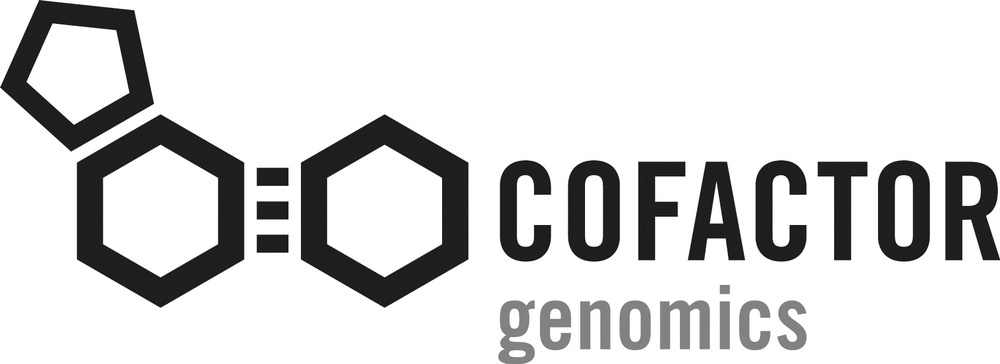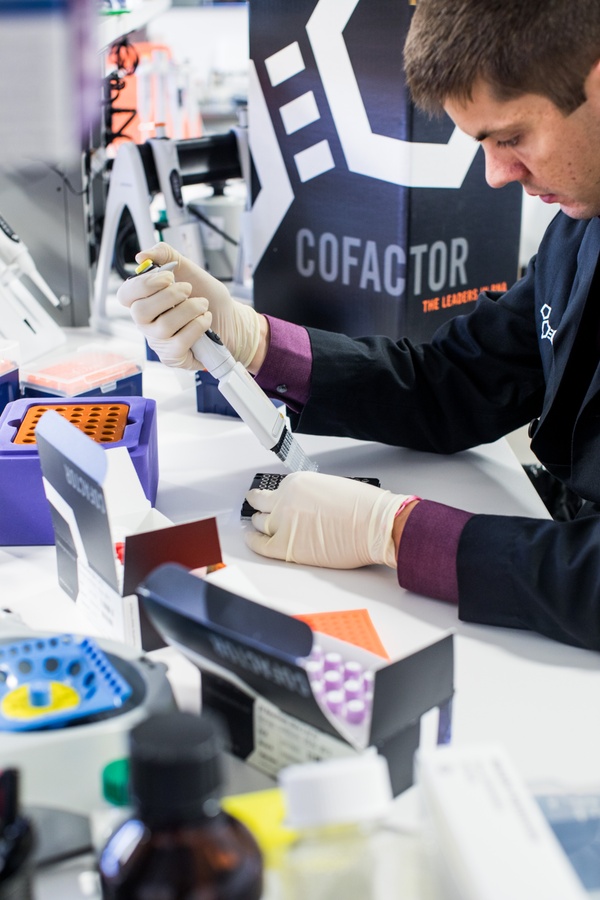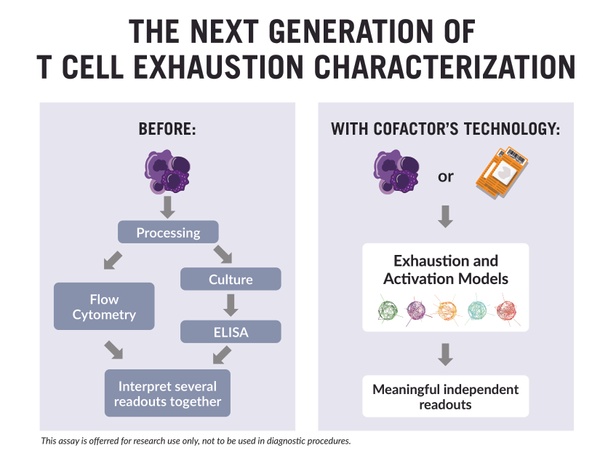San Francisco, CA – May 6, 2020 – Winners of Cofactor Genomics’ “Functional to FFPE” Grant Program were publicly announced today. Two projects from Dell Medical School at University of Texas and the University Hospital in Basel were chosen based on their potential to make a significant impact in patients’ lives using the company’s new T cell state characterization technology. The projects will be supported by Cofactor with access to molecular, informatics, and technical support in their clinical sequencing laboratory.
The winners will be provided with early-access to the newest feature in Cofactor’s Predictive Immune Modeling platform, built using multidimensional RNA models to characterize T cell state within formalin-fixed and paraffin embedded (FFPE) tissue samples. The technology represents an opportunity to establish a consensus technique for measuring T cell states, including exhaustion, known to be important in predicting patients’ response to immunotherapy.
While FFPE solid tumor tissue samples are considered some of the most difficult specimens to analyze due to their fragmented and chemically-modified nature of the nucleic acids, Cofactor’s RNA-based approach is optimized and has been validated specifically for use with these materials. Moving beyond solid tumor indications, Cofactor Genomics will also be expanding into blood cancers for the first time, with the project from UT Dell Medical School.
“Determining the composition and signatures within the normal T cell compartment will provide important insight into their functional status and may indicate the existence of anti-leukemia immune responses. The T Cell State Profiling Platform from Cofactor Genomics could provide a powerful means to accomplish this,” stated Todd Triplett, PhD, the principal investigator at UT Dell Medical School on the project.
Grants have been awarded to the following institutions and primary investigators:
■ Institution: UT Dell Medical School
■ Principal Investigator: Todd Triplett, PhD
■ Brief research description: The project intends to determine the functional state of T cells and the potential of immunotherapy in T cell Acute Lymphoblastic Leukemia (T-ALL). These studies will determine the degree of T cell exhaustion in T-ALL patients and the ability of anti-PD-1 treatment in enhancing their effector function.
■ Institution: University Hospital in Basel
■ Principal Investigator: Ilaria Alborelli, PhD
■ Brief research description: The project aims to assess functional T cell state associated with response to immune checkpoint inhibitors in non-small cell lung cancer patients. The data from Cofactor’s technology will be integrated with existing PD-L1 immunohistochemistry (IHC), tumor mutational burden (TMB), and T Cell Receptor (TCR) clonality data previously collected for the patients in the study.
More information on how the multidimensional models used to power Cofactor’s T Cell State Profiling technology were developed, and how the RNA models may be applied to specific research programs is available in this technical white paper.
About Cofactor Genomics
Cofactor Genomics is bridging the precision medicine gap by building diagnostic tools to match the right patient to the right treatment at the right time. Predicting patient response to therapy currently relies on isolated, single-analyte biomarkers that have failed to deliver accurate therapy response predictions, resulting in unnecessary healthcare costs, and most harmfully, negative outcomes for patients. Cofactor’s products use Predictive Immune Modeling, which leverages RNA data and machine learning to combine biological signals, creating multidimensional biomarkers to deliver on the promise of precision medicine. Cofactor Genomics offers its full-service molecular, informatic, and database tools to make drug discovery, clinical trials and therapy selection more successful. Find out more about how Cofactor Genomics is revolutionizing precision medicine at cofactorgenomics.com.
The ImmunoPrism assay is offered both for Research Use Only (not to be used as a diagnostic assay) and within our CAP-certified laboratory. Please contact us to discuss which option is right for your application.
MEDIA CONTACT
Mariesa Kemble, Chronic Communications Inc.
kemblem@aol.com
(608) 850-4745





